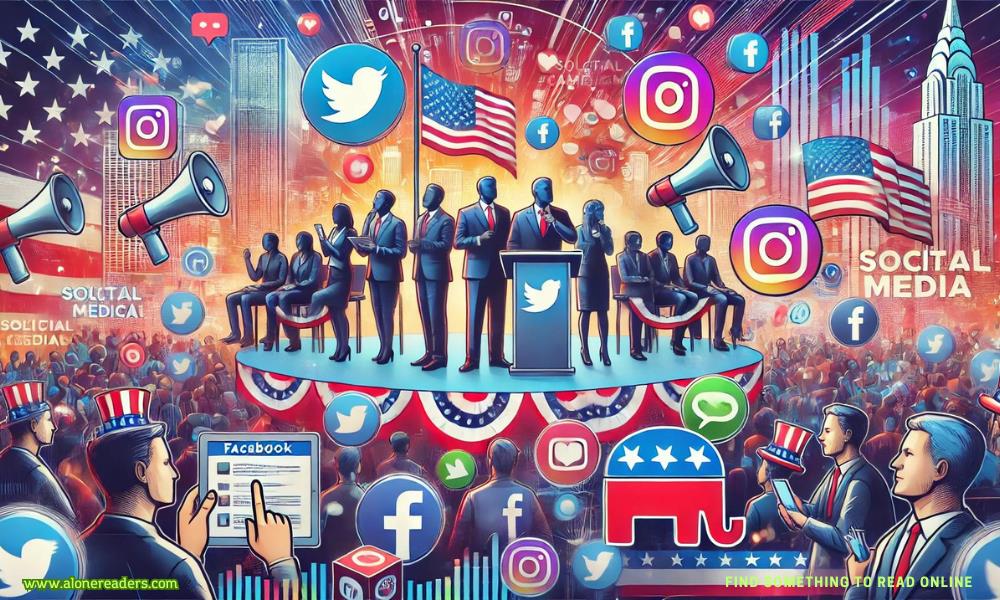
In today's digital age, social media has become an indispensable tool for political campaigns. Its influence on political discourse and elections is profound, fundamentally transforming how politicians communicate with the public and how voters engage with the electoral process. The advent of social media platforms like Facebook, Twitter, Instagram, and TikTok has created new opportunities and challenges in the political arena, reshaping traditional strategies and introducing unprecedented dynamics.
One of the most significant impacts of social media on political campaigns is the ability to reach a vast audience instantly. Unlike traditional media, which relies on scheduled programming or print distribution, social media allows for real-time communication. Politicians can share their messages, policies, and updates with millions of followers at the click of a button. This immediacy fosters a more direct connection between candidates and their constituents, enabling politicians to respond to current events and public concerns swiftly.
Moreover, social media platforms provide a cost-effective means for political campaigns to disseminate information. Traditional advertising through television, radio, and print media can be prohibitively expensive, especially for smaller campaigns with limited budgets. In contrast, social media offers a relatively low-cost alternative, allowing candidates to allocate resources more efficiently. By leveraging organic reach and targeted ads, political campaigns can achieve significant visibility and engagement without the need for substantial financial investment.
The interactive nature of social media also plays a crucial role in shaping political discourse. Unlike passive consumption of information through traditional media, social media encourages active participation and discussion. Voters can comment on posts, share their opinions, and engage in debates with others. This level of interaction fosters a more engaged and informed electorate, as individuals are exposed to diverse perspectives and can participate in the political conversation. Consequently, social media has the potential to democratize political discourse, giving a voice to those who might otherwise be marginalized in traditional media spaces.
However, the influence of social media on political campaigns is not without its drawbacks. The rapid spread of information on social media can lead to the proliferation of misinformation and fake news. False or misleading content can quickly go viral, reaching a wide audience before it can be fact-checked or debunked. This phenomenon can distort public perception and influence voting behavior, often to the detriment of informed decision-making. Political campaigns must therefore navigate the challenges of maintaining credibility and trust in an environment where misinformation is rampant.
Another concern is the echo chamber effect, where social media users are exposed primarily to content that aligns with their existing beliefs and opinions. Algorithms used by social media platforms often prioritize content that generates high engagement, which can result in the reinforcement of existing biases. This selective exposure can polarize the electorate, as individuals become less likely to encounter diverse viewpoints and more entrenched in their own perspectives. The echo chamber effect poses a significant challenge for political campaigns seeking to reach undecided voters and foster constructive dialogue across different segments of the population.
Social media has also introduced new forms of political activism and grassroots movements. Hashtags, viral campaigns, and online petitions have become powerful tools for mobilizing support and raising awareness on various issues. Social media can amplify the voices of ordinary citizens, enabling them to organize and advocate for change. This grassroots activism can influence political campaigns by highlighting issues that resonate with the public and pressuring candidates to address them. The power of social media in driving social and political movements underscores its role as a catalyst for change in modern politics.
Furthermore, data analytics and micro-targeting have revolutionized political campaigns by enabling highly personalized and strategic outreach. Social media platforms collect vast amounts of data on user behavior, preferences, and demographics. Political campaigns can harness this data to create targeted advertisements and messages tailored to specific segments of the electorate. This precision allows campaigns to maximize their impact by reaching the right people with the right message at the right time. However, concerns about privacy and data security have emerged, as the use of personal data for political purposes raises ethical and legal questions.
The global nature of social media also means that political campaigns are no longer confined to national borders. Candidates can engage with international audiences, and foreign actors can influence domestic elections. The potential for foreign interference in elections through social media has become a significant concern, prompting calls for greater regulation and oversight. Ensuring the integrity of elections in the digital age requires addressing the challenges posed by the transnational flow of information and the influence of external entities on domestic political processes.
In conclusion, social media has fundamentally transformed political campaigns, shaping political discourse and impacting elections in profound ways. Its ability to reach a wide audience instantly, foster engagement, and facilitate cost-effective communication offers significant advantages for political candidates. However, the challenges of misinformation, echo chambers, and data privacy must be addressed to ensure the integrity of the electoral process. As social media continues to evolve, its influence on politics will undoubtedly remain a critical factor in shaping the future of democratic participation and governance.